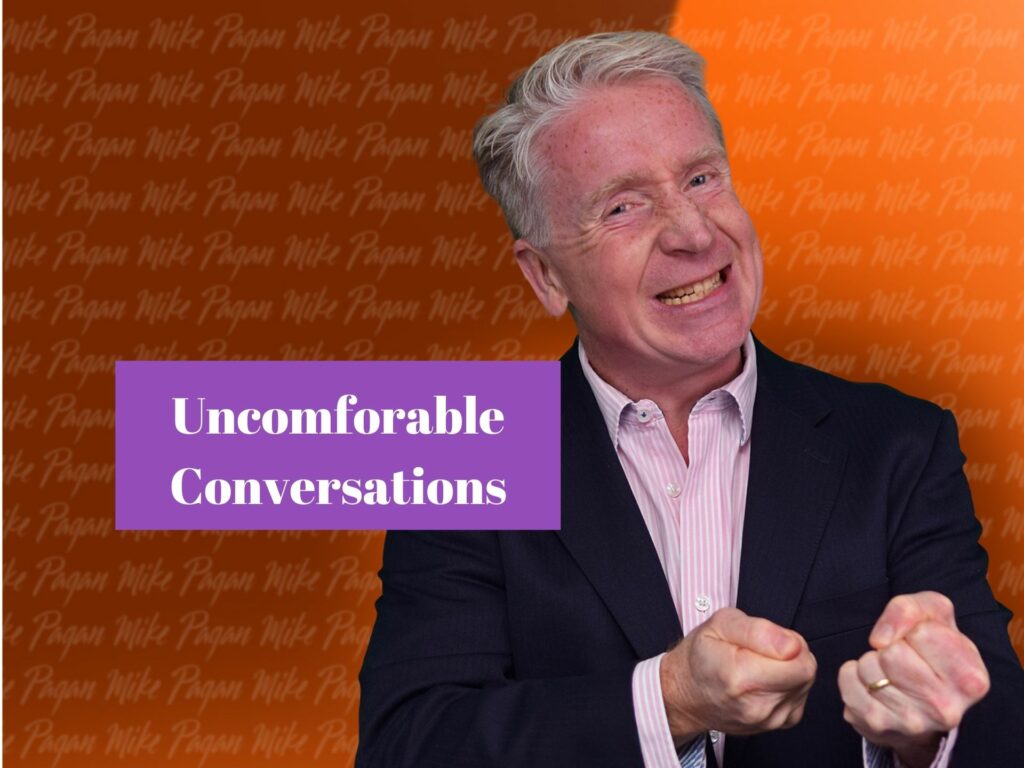
Uncomfortable Conversations
Often we are faced with the prospect of having to have an uncomfortable conversation. We can be guilty of avoiding saying what needs to be said and facing the truth of a situation full on. Sadly, by not having that conversation, situations can escalate, and conflict ensues further down the track.
In recent times I have debated with clients, colleagues and family the challenges of uncomfortable conversations and how much it feels like conflict.
Consider the feeling you get when conflict kicks in, the hairs on the back of your neck stand up, the stomach gets caught up in knots, you start to sweat, and that caveman fight or flight instinct is triggered by the amygdala in the brain. All powerful feelings within the body and all with a singular focus on survival. When nerves and anxiety are felt in the body, similar triggers are set in motion but with far less intensity and the objective is a sense of alertness rather than survival. This can happen when going into a job interview, standing on stage or having an uncomfortable conversation with a neighbour about their cat and your daughter’s hamster.
Most people don’t like conflict, and because they don’t like confrontation, they avoid anything that feels slightly uncomfortable that can be tenuously related to the conflict. That shouldn’t be the case.
Having a different point of view or seeing somebody disagreeing with another person’s opinion is not conflict. It’s life! And let’s be fair, it makes the world an exciting place. Having that discussion with a partner, employee, sibling or child where you know they don’t want to hear what you have to say or might not be aware of your thoughts, is uncomfortable. The reality is that something needs to be said. Sometimes you need to tell them what to do, what not to do. I recall that time as a parent, when I had to teach my children about the facts of life, sexual organs and the reproductive system – that was uncomfortable, there wasn’t any conflict, just uncomfortable.
The beauty of an uncomfortable conversation is the fact that your body releases adrenalin into your system, and it gives you a boost of energy and endorphins. This results in you becoming more alert, clear-headed and sharp, which in a sporting analogy would mean you become psyched up and ready for action. It’s not aggressive or confrontational; it’s a state of readiness which will help you share your views and opinions concisely.
In the situation where a discussion continues, and one side refuses to see or acknowledge the other point of view, there is a risk of escalation because of the belief that only one side can be correct, and that results in conflict. Politicians disagree all the time, and that doesn’t always turn into conflict, regularly there is compromise, stalemate and time out while looking for alternative solutions.
The fear of conflict prevents people from having uncomfortable conversations, and this can be dangerous. A situation left to dwell, can percolate and develop quietly inside your brain fermenting in the subconscious, and that is not good. And after some time, – days, hours or even months – that uncomfortable conversation now becomes truly difficult, and you’ve become so strong in your views that any other opinion is likely to push you straight into conflict.
Where and how should you have these conversations? Speak in a private setting, not in the hallway or when walking past, go somewhere that you can sit, and start by being honest about your level of discomfort while staying polite and direct at all times. In any conversation like these, it is so important to listen and respond to what is said rather than waiting for a pause before you say whatever it was you planned, disregarding what they have said. If in doubt, practise and rehearse with an independent party or friend, this action alone can prepare you fully for different outcomes and help your comfort and confidence in approaching the situation.
How often are you guilty of avoiding the slightly uncomfortable conversation? When you get it right, you have less conflict, deal with the matter in hand whilst it’s a little bit uncomfortable and moving forward is easy. Good luck. Enjoy your conversations. And when they’re uncomfortable, remember it’s the genius that is your body giving you some adrenalin to help.

